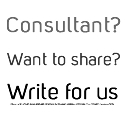What is your interviewer really thinking about?
By Snehil Priya. December 6th, 2010. Posted in Your career 1 Comment »
Like all of the recruitment websites and interview handbooks will tell you, adequate preparation for an interview is essential. The more you prepare, the better your chances are for success. During a consulting interview, your interviewer will be looking to see if you have a sound understanding of the role, company, industry and competitors. They will also be expecting you to demonstrate key competencies which make you suitable for the job – all of which should be detailed on their website or job description.
However, even if you tick all of the checkboxes in terms of understanding and competencies, this does not necessarily “guarantee†you a golden ticket to next step of the recruitment process or getting a job offer.
When managers interview candidates for a job, they often make subconscious judgments about the candidate and try to form conclusions about their suitability through what the candidate says and how they say it. I have often spoken with consulting managers who have rejected strong candidates based on a “hunch†or “suspicion†that they would not fit within the organisation. It is almost like there is a separate list of questions that they are considering in addition to the ones drawn up by HR.
Below are three key “unsaid†questions that your interviewer may be subconsciously asking themselves during your interview and some advice on how to address them.
Could I put this person in front of a client?
Consulting is predominantly a client-facing profession and one of the key things your interviewer will be looking for is that you are “safe†enough to put in front of clients. This will come across through your confidence, interpersonal skills and above all your professional demeanour. To demonstrate these characteristics, treat your interviewer with the same respect you would treat a very important client.
Remember that consulting is in the “professional†services industry and the standard of professionalism you display in a consulting interview will need to be particularly high. By acting professionally you are showing the interviewer that you will be able to suitably represent both yourself and the company to clients. Being formal and well groomed in your appearance is more important than being fashionable. You can test the fashion boundaries once you have your employee badge but in an interview it is always better to play it safe. Also, if there is ever a place to be politically correct, it is in a consulting interview! You will know very little about your interviewer. You don’t know what they find to be funny, offensive or appropriate so be careful about what you say.
Lastly, don’t speak too negatively of previous bosses, clients or employers. This definitely is not professional and is something that people often slip up on during interviews. By avoiding negativity, it will demonstrate to the interviewer that you can be both tactful and positive with clients (and colleagues) and won’t bad-mouth them if things go wrong.
Does this person really want to be here?
The last thing you want your interviewer to think is that the job you are interviewing for is a “back up choice†or “last optionâ€. No one wants to be second best and this includes consulting firms. You have to communicate what you truly like best about the opportunity over others. It doesn’t have to be everything, just pick out a unique differential about the role or the company and talk specifically about why it appeals to you. It will show your interviewer that you have thought about the role and have imagined yourself in it.
As well as being enthusiastic about the role and the company, you have to clearly communicate why you have applied for the opportunity and what your career intentions are. You need to make a comprehensive story around your CV and relate it to your motivations in applying for the job. This is even more important if you have frequently switched employers or industries. Don’t just think about why you want to be in consulting, think also about why you want this position in particular, as many candidates often fail to adequately do this.
Is this person genuine?
Ethics is a big deal in consulting and is something firms take very seriously. It is not just lip-service. No company wants to be the next Arthur Anderson or Enron and no company wants employees who put them at risk. Don’t lie in an interview, it just isn’t worth it. It is so obvious to interviewers when people are telling tales or making wild embellishments about their experiences. This is a huge sticking point for an interviewer and even if the fib is a small one, it could be the reason why you receive a one page letter instead of a welcome packet. Not only does lying tell your interviewer that you lack confidence in your actual experiences and abilities, but it also raises serious questions about your integrity and character. If they start to question you, they will start to question everything you say. Be sincere and enthusiastic when talking about your experiences, this will go a lot further than being dishonest.






Comments (1)
6th December 2010 at 5:07 pm
[…] This post was mentioned on Twitter by Snehil Priya, Consultive Magazine. Consultive Magazine said: What is your interviewer really thinking about? http://bit.ly/gDXtiM #consulting #recruitment […]